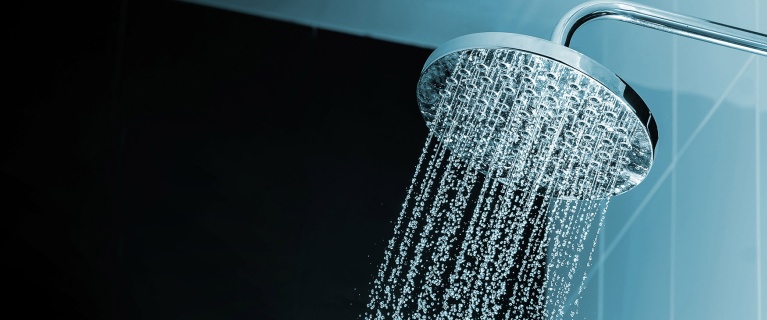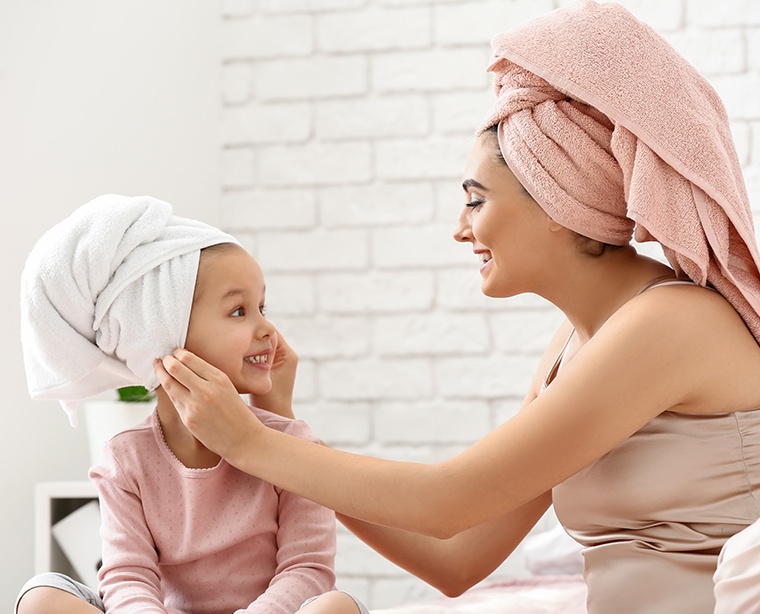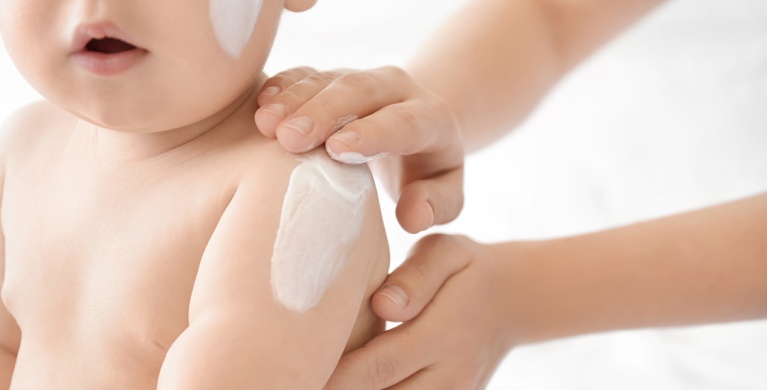

Should you take a bath or shower when you have eczema?

Which shower gel should you use if you have eczema? Should the bath be hot or warm? How do you dry off? We offer our advice on helpful ways to get soothing relief from eczema in your bathroom!
Wash yourself with your hand (not a cloth)
Your hands are cleaner and less irritating than a washcloth. Be sure to wash your hands thoroughly before your shower or bath.
When cleansing your face, avoid using cotton pads which irritate the skin. Use a suitable cleanser, removing any excess with a paper tissue or with water.
Use soap-free products
Why do skin care professionals always recommend avoiding soap or products containing it? Because it is overly harsh on atopic skin, which is already fragile due to being very dry. A dermatological bar or gel will be gentler on the skin. It preserves the skin’s protective barrier (hydrolipidic film), which enables it to cleanse gently and prevent further dryness.
Soaps typically have a pH of about 10, whereas the skin’s pH is approximately 5.5. The best way to alleviate eczema symptoms is to use a product with a pH similar to that of the skin.
Use products adapted to atopic skin
- Fragrance free (watch out for essential oils; they are scented substances)!
- Free from allergenic preservatives like MIT or the MI/MCI combo, frequently found in shampoos.
Avoid overly hot baths or showers
By taking a bath or shower with warm water (rather than hot), you are protecting your skin.
European experts recommend a temperature range of 27 to 30°C.
Hotter temperatures can:
- dry out the skin even more
- re-activate inflammation
Avoid staying in the water too long
Chlorine is added to the water at home, and not just in the pool. Water often contains limestone as well. Both of these substances are bad for atopic skin: chlorine irritates the skin, and limestone dries it out.
Recommended duration: maximum of 5 minutes, according to European experts.
Soften the bath water
Add a liquid emollient to the bath to reduce water hardness.
Some doctors (especially in the U.S.) recommend adding antiseptics such as sodium hypochlorite, which can also help treat atopic eczema by reducing the amount of staphylococci on the skin...TO BE DELETED
Dry off by dabbing
Do not rub! Absorb the water by gently dabbing your skin with a towel in order to avoid triggering an eczema flare-up. Avoid letting the water evaporate naturally, as this dries out the skin.
Hair care
Ideally, use a dermatological shampoo adapted for frequent use.
Try to wash your hair in the evening to remove any pollen or other allergens before going to bed.
Keep your nails short
You’re in the bathroom already, so why not take advantage and cut your nails while you’re at it (or your child’s nails if they have eczema). This is one of the most important steps to avoid damaging the skin even further while scratching and to prevent the risks of superinfection on the patches caused by germs under the nails.
Hydrate your skin after your bath or shower
The next step after your bath or shower is to hydrate your skin. Applying your emollient every day helps prevent flare-ups! This simple step will save your skin!

